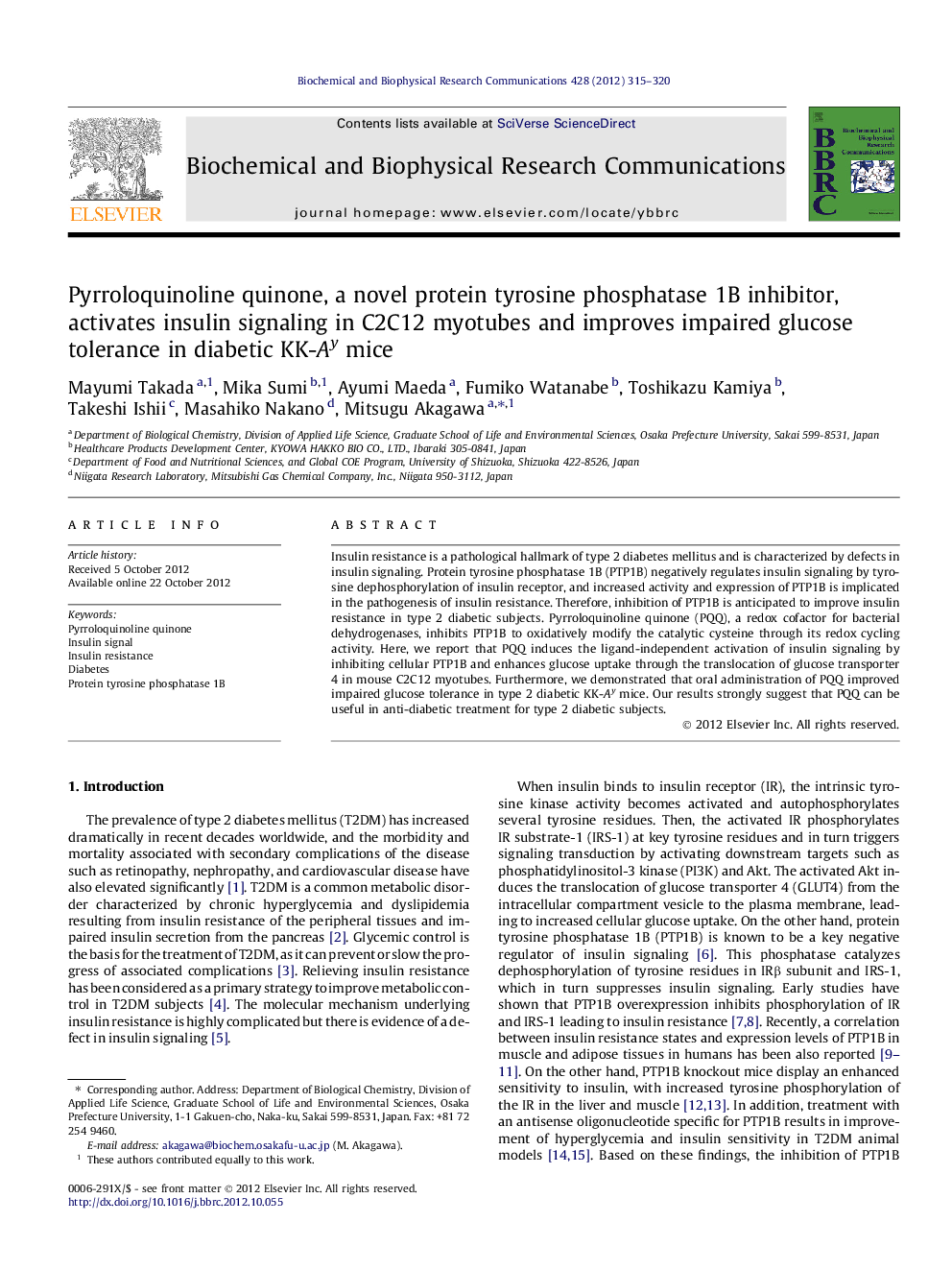| Article ID | Journal | Published Year | Pages | File Type |
|---|---|---|---|---|
| 1929418 | Biochemical and Biophysical Research Communications | 2012 | 6 Pages |
Insulin resistance is a pathological hallmark of type 2 diabetes mellitus and is characterized by defects in insulin signaling. Protein tyrosine phosphatase 1B (PTP1B) negatively regulates insulin signaling by tyrosine dephosphorylation of insulin receptor, and increased activity and expression of PTP1B is implicated in the pathogenesis of insulin resistance. Therefore, inhibition of PTP1B is anticipated to improve insulin resistance in type 2 diabetic subjects. Pyrroloquinoline quinone (PQQ), a redox cofactor for bacterial dehydrogenases, inhibits PTP1B to oxidatively modify the catalytic cysteine through its redox cycling activity. Here, we report that PQQ induces the ligand-independent activation of insulin signaling by inhibiting cellular PTP1B and enhances glucose uptake through the translocation of glucose transporter 4 in mouse C2C12 myotubes. Furthermore, we demonstrated that oral administration of PQQ improved impaired glucose tolerance in type 2 diabetic KK-Ay mice. Our results strongly suggest that PQQ can be useful in anti-diabetic treatment for type 2 diabetic subjects.
► Protein tyrosine phosphatase 1B (PTP1B) is a negative regulator of the insulin signal. ► PTP1B inhibitors are potential therapeutic agents for treating type 2 diabetes. ► We have found that pyrroloquinoline quinone (PQQ) is a potent PTP1B inhibitor. ► PQQ activated insulin signaling in C2C12 myotubes in an insulin-independent manner. ► PQQ improved glucose tolerance in type 2 diabetic KK-Ay mice.
